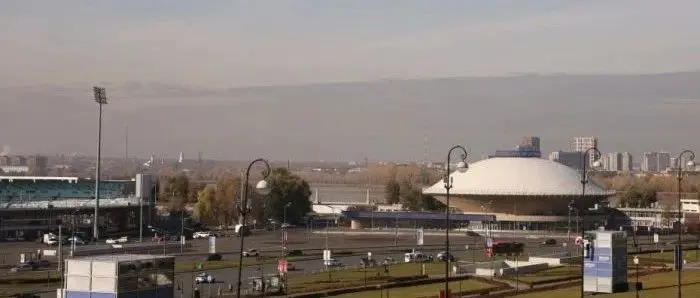Journalist's Notes: When the "Kazan Spirit" Meets the BRICS Spirit

Kazan, a millennium-old city on the banks of the Volga River, is set to host the first summit of BRICS leaders following its expansion. The enchanting "Kazan spirit" meets the unique BRICS ethos at this moment.
As the capital of the Republic of Tatarstan in the Russian Federation, Kazan enjoys a strategic location where the winding Volga River intersects with the Kazanka and Kama Rivers, making it a historical hub for human and trade exchanges. The origin of the name "Kazan" is subject to various interpretations. One explanation suggests that to fend off foreign invasions, a wooden fortress resembling an inverted cauldron was constructed here. In the Tatar language, Kazan means "cauldron."
For over a thousand years, Kazan has been a "cauldron" that has become a "melting pot" of diverse cultures. The fusion of different cultures is evident in the local architectural styles, with the Kazan Kremlin being a prime example. In Russian, the Kremlin means "fortress within a city." In addition to the frequently mentioned Moscow Kremlin, many cities in Russia actually have their own Kremlins. The Kazan Kremlin, like the Moscow Kremlin, has been listed as a World Heritage Site.
Built on the high ground by the river, the Kazan Kremlin is the oldest architectural complex in Kazan, the only surviving Tatar fortress within Russia, blending architectural styles from Bulgaria, Italy, Russia, and more, it has become a famous "must-visit spot" locally. Walking up the stone steps of the Kazan Kremlin, a strong sense of time rushes over you. From the original wooden ramparts to the present white stone walls, from the initial defensive fortress to the current landmark, this complex has witnessed the history of this land over several centuries.
As the summit approaches, banners for the BRICS summit can be seen everywhere on the streets flanking the Kazan Kremlin. Against the backdrop of the azure sky, the BRICS banners composed of the white, blue, and red colors of the Russian flag stand out prominently, bearing the words "BRICS Russia Kazan," imbuing the atmosphere with a strong sense of the summit.
As a testament to historical continuity and cultural diversity, the Kazan Kremlin architectural complex embodies the integration and exchange of values among different cultures, which aligns perfectly with the BRICS' original aspiration of openness, inclusiveness, and win-win cooperation.
Some say that if you recommend a " " route in Kazan, the keyword must be culture. On Kremlin Street in Kazan, one end is the Kremlin, and the other is Kazan Federal University, a renowned institution in Russia. This prestigious university, which has nurtured many outstanding figures, is celebrating its birthday this year. Kazan Federal University is the third university established in Russia after Moscow State University and Saint Petersburg State University. The school still preserves the classrooms where two students once studied—Lenin and Tolstoy.
In the long years, the profound cultural heritage has nurtured the "Kazan spirit." Pushkin delved into Kazan to gather creative material, writing the masterpiece "The Captain's Daughter," and Gorky incorporated his own experiences in Kazan into the autobiographical novel "My University." Literary giants have all regarded this place as a "wellspring of inspiration."
Humanistic exchanges have always been one of the "three-wheel drive" frameworks of the BRICS cooperation mechanism. Film festivals, sports events, co-produced films and documentaries, and other popular activities have been vibrant, building bridges of mutual understanding among the people. As some commentators have pointed out, the success of BRICS cooperation fully demonstrates that different value cultures can interact with each other.
Today, the millennium-old city of Kazan in Russia is about to host a grand gathering of the BRICS family. As the "Kazan spirit" meets the BRICS ethos, the unique charm of openness, inclusiveness, win-win cooperation, and cultural exchange in BRICS cooperation finds a more concrete expression.

